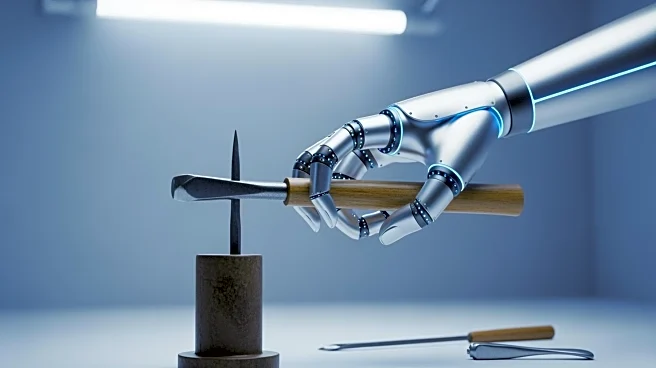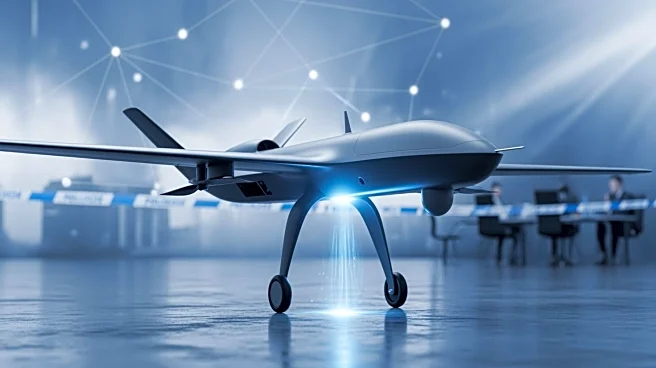What's Happening?
The rise of AI is leading to concerns about de-skilling, where human expertise shifts from production to appraisal. This phenomenon is observed in various fields, such as coding, where AI tools like GitHub
Copilot redirect human skills from generating code to assessing it for errors. In healthcare, AI-assisted procedures have shown increased detection rates, although individual clinicians may become less adept unaided. The broader implication is a shift in human roles from creating to supervising AI outputs, raising questions about the future of expertise and the role of humans in AI-driven workflows.
Why It's Important?
The shift in human expertise due to AI has significant implications for workforce dynamics and education. As AI takes over routine tasks, humans may need to focus on higher-level skills such as judgment and decision-making. This transition could lead to changes in job requirements and educational curricula, emphasizing critical thinking and problem-solving over rote tasks. The potential for AI to enhance productivity while altering traditional skill sets poses challenges and opportunities for industries and workers alike.
What's Next?
Industries may need to adapt to these changes by investing in training programs that focus on developing supervisory skills and critical thinking. Educational institutions might revise curricula to prepare students for an AI-integrated workforce. Policymakers could consider regulations to address the ethical implications of AI and ensure equitable access to AI-driven opportunities.
Beyond the Headlines
The cultural and ethical dimensions of de-skilling are profound, as they challenge traditional notions of expertise and human value. The long-term impact of AI on human identity and societal roles could lead to shifts in how individuals perceive their contributions to work and society.









